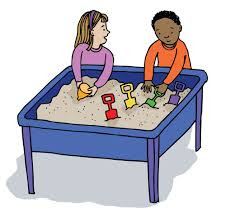Music education helps improve children's ability to learn
What if a large number of scientific studies found there was one activity that could improve our cognitive function, help our memory systems work effectively, help us learn language, help us moderate our emotional states, help us solve complex problems and help our brains be healthier into later life? What if that activity was also enjoyable for everyone involved?
There is one such activity: music education.
I am a music educator who has become fascinated by the research done by neuroscientists and psychologists about the impact of music learning on brain development, especially in school-aged children.
A question I frequently get asked is: how can one activity have so many positive impacts on the brain? The list in my opening statement is just the tip of the iceberg.
Over the last four years, we have learned how music education improves working memory, phonemic awareness, development of complex spatial skills, impulse control development, auditory development that protects our brains from aging, and reading and comprehension skills. The list could go on and on.
Learning music is a full brain workout
What we now know is that learning a musical instrument and foundation music education skills – such as clapping in time, singing in tune and moving to music – are some of the most complex cognitive activities the brain can undertake. They involve the auditory, motor and visual cortices communicating at an astonishingly fast rate, while the cognitive, reward and sensory networks are sharing information, and the perception, emotion and cognition networks are making personal meaning from all the logical information the brain is processing.
After doing something so complex, our brains look at other tasks like reading, problem solving and conceptualization and say: “Well, this is easy in comparison to music learning!”
The list of skills and abilities that music learning develops is still very long, but it has started to be sorted under three main areas: language development, executive skills and social skills development.
To give you an idea of how this happens, here is a crash course in music and the brain.
How learning music improves brain development
The parts of the brain that are responsible for learning music and language are overlapping.
This means we hear music as language when we are babies and we use that understanding to the learn how to decode language and speak it.
This is why musically trained children tend to acquire language quicker, learn how to read earlier and develop comprehension skills earlier. This is the very foundation of all learning at school: the ability to use language.
The act of learning music requires children to use many different parts of their brains at once.
One of the areas that gets a great workout is the prefrontal cortex, where our executive functions live – the area where we very slowly, through our entire school career, learn how to manage ourselves.
Music learning requires the use of that system just a little bit every single time we pick up an instrument and do a musical activity. It is the slow, permanent and effective development of the most complex part of our brains.
Playing music in a group, whether keeping a beat or playing a symphony, requires subtle, nonverbal social skills. These are the manners and explicit behaviors we work so hard to teach our children, whether as parents or teachers. These are the subtle, deeply human social skills that employers seek when they interview someone.
These serve musically trained children well into adulthood as they develop solid relationships, manage their well being, and are empathic and compassionate towards others.
The big myth about music education
Very often I hear parents say: “My children aren’t going to a be concert pianists so why should they keep learning music?”
It's a fair question but one that's informed by old thinking and a lack of understanding of the new research.
Music is a wonderful art form and one that will enrich your children regardless of how proficient they become.
Learning music to pursue it as a profession is not the point of music education for every child in school.
Learning music provides children with the cognitive foundations for effective learning, which ultimately helps them become confident learners, ready to make the most of their education.
Must Visit : handling emotions
Reference : Dr Anita Collins
What if a large number of scientific studies found there was one activity that could improve our cognitive function, help our memory systems work effectively, help us learn language, help us moderate our emotional states, help us solve complex problems and help our brains be healthier into later life? What if that activity was also enjoyable for everyone involved?
There is one such activity: music education.
I am a music educator who has become fascinated by the research done by neuroscientists and psychologists about the impact of music learning on brain development, especially in school-aged children.
A question I frequently get asked is: how can one activity have so many positive impacts on the brain? The list in my opening statement is just the tip of the iceberg.
Over the last four years, we have learned how music education improves working memory, phonemic awareness, development of complex spatial skills, impulse control development, auditory development that protects our brains from aging, and reading and comprehension skills. The list could go on and on.
Learning music is a full brain workout
What we now know is that learning a musical instrument and foundation music education skills – such as clapping in time, singing in tune and moving to music – are some of the most complex cognitive activities the brain can undertake. They involve the auditory, motor and visual cortices communicating at an astonishingly fast rate, while the cognitive, reward and sensory networks are sharing information, and the perception, emotion and cognition networks are making personal meaning from all the logical information the brain is processing.
After doing something so complex, our brains look at other tasks like reading, problem solving and conceptualization and say: “Well, this is easy in comparison to music learning!”
The list of skills and abilities that music learning develops is still very long, but it has started to be sorted under three main areas: language development, executive skills and social skills development.
To give you an idea of how this happens, here is a crash course in music and the brain.
How learning music improves brain development
The parts of the brain that are responsible for learning music and language are overlapping.
This means we hear music as language when we are babies and we use that understanding to the learn how to decode language and speak it.
This is why musically trained children tend to acquire language quicker, learn how to read earlier and develop comprehension skills earlier. This is the very foundation of all learning at school: the ability to use language.
The act of learning music requires children to use many different parts of their brains at once.
One of the areas that gets a great workout is the prefrontal cortex, where our executive functions live – the area where we very slowly, through our entire school career, learn how to manage ourselves.
Music learning requires the use of that system just a little bit every single time we pick up an instrument and do a musical activity. It is the slow, permanent and effective development of the most complex part of our brains.
Playing music in a group, whether keeping a beat or playing a symphony, requires subtle, nonverbal social skills. These are the manners and explicit behaviors we work so hard to teach our children, whether as parents or teachers. These are the subtle, deeply human social skills that employers seek when they interview someone.
These serve musically trained children well into adulthood as they develop solid relationships, manage their well being, and are empathic and compassionate towards others.
The big myth about music education
Very often I hear parents say: “My children aren’t going to a be concert pianists so why should they keep learning music?”
It's a fair question but one that's informed by old thinking and a lack of understanding of the new research.
Music is a wonderful art form and one that will enrich your children regardless of how proficient they become.
Learning music to pursue it as a profession is not the point of music education for every child in school.
Learning music provides children with the cognitive foundations for effective learning, which ultimately helps them become confident learners, ready to make the most of their education.
Must Visit : handling emotions
Reference : Dr Anita Collins
















